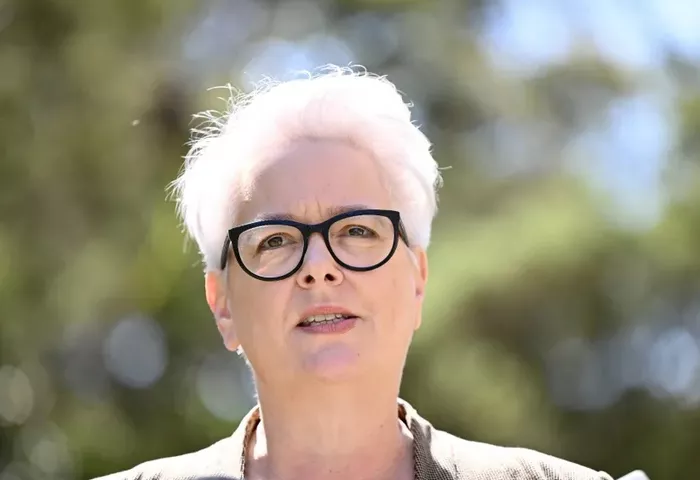The New South Wales (NSW) government is seeking public input on a newly proposed fee structure for camping in national parks, aiming to introduce a “fair and consistent” system that would standardize charges across the state and, for the first time, apply fees to many currently free campsites.
At present, camping fees in NSW national parks vary significantly depending on the park, as they are set individually at the park level. The new proposal by the NSW National Parks and Wildlife Service (NPWS) suggests harmonizing fees statewide by aligning low season rates with current average prices and increasing fees during high season for most campsites.
One of the key changes in the proposal includes removing per-person surcharges. This means that for groups of three or more, camping will generally become more affordable during the low season. However, in most other scenarios, the cost is likely to rise. Additionally, the percentage of free campsites will be significantly reduced, dropping from approximately 30% to just 10% of total campsites.
For the first time, campers will also be eligible for refunds of up to 80% of their booking fee if they cancel their plans. This measure is intended to discourage people from holding bookings they do not intend to use and to free up space for other visitors.
The NPWS consultation paper emphasizes that the proposed changes are driven by a need to meet rising operational costs, support ongoing maintenance, and accommodate growing visitor numbers. The agency noted that there have been no substantial updates to camping fees since 2017, nor have fees been adjusted to keep pace with inflation, despite marked increases in park visitation, infrastructure investment, and management expenses.
“The proposed camping fee system is designed to discourage people from booking more sites than they need and incentivise visitors to cancel bookings when plans change,” the NPWS stated in its report. “Some modest fee increases would support ongoing maintenance and provision of onsite visitor services.”
While camping and entry fees have never fully covered the cost of maintaining the parks, demand on the NPWS has surged in the last decade. Visits to national parks increased from 35.4 million in 2012 to 53 million in 2022. The introduction of an online booking system in 2020 recorded 1.8 million bookings, though meaningful year-to-year comparisons are limited due to the system’s phased rollout.
A 2022 survey of 1,000 frequent park visitors revealed generally high satisfaction with park facilities, but also raised concerns regarding site maintenance, the perceived absence of park management staff, and the issue of campers booking but not showing up.
Of those surveyed, 69% indicated they would be willing to pay higher fees for a better camping experience and supported a pricing structure based on the availability of facilities, services, location, and season.
The NPWS has also had to contend with increasing pressure from environmental factors such as more frequent and intense bushfires. These challenges have been compounded by historical underfunding. In 2017, the previous state government implemented budget cuts to the NPWS, and later, during the 2019-20 bushfire season, unfairly blamed the agency for the fires’ extent—despite no evidence. This narrative was used to justify further reductions in funding the following year.
These compounded issues have created a financial shortfall for the NPWS. Unless it secures additional funding from the state government or implements revised fee structures, the agency may face an unsustainable operating deficit.
NPWS falls under the Department of Climate Change, Energy, the Environment and Water (DCCEEW). According to the latest NSW budget update, NPWS has been allocated $454 million in ongoing funding and $60 million in capital funding for the upcoming year. This funding remains the agency’s primary financial support, as revenue from user fees and donations makes up a relatively minor share—an amount not specified in either the annual reports or budget documents.
The NPWS is responsible for managing a vast area of 7.6 million hectares, encompassing national parks, nature reserves, World Heritage sites, rainforests, alpine areas, beaches, and culturally significant landmarks. The agency oversees everything from visitor services and park maintenance to conservation efforts, fire management, research, and community engagement programs such as education and volunteering.
Currently, only 45 of the 895 national parks in NSW charge entry fees. Out of 365 official campsites, 112 are currently listed as free. However, these free sites have also included a mandatory $6 booking fee since the COVID-19 pandemic began.
With increasing visitation and growing demands on park infrastructure and management, the NSW government’s proposed changes aim to ensure that the camping experience remains sustainable, accessible, and enjoyable for future generations. Public consultation on the proposed changes is now open, giving citizens an opportunity to weigh in on how best to balance equitable access with financial and environmental sustainability.
Related Topics
- UK Supreme Court to Decide on Wild Camping Rights in Dartmoor Legal Battle
- Infighting and Vested Interests Delay Bush Eco-Camp Development in Ngong Road Forest, Says Kenya Forest Service
- Victoria Ends Free Camping Program Amid Ghost Bookings and Rubbish Issues

